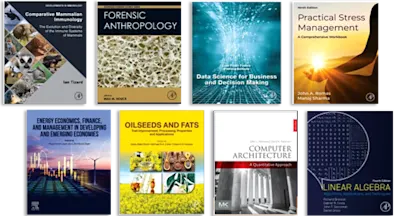
Teaching Research Processes
The Faculty Role in the Development of Skilled Student Researchers
- 1st Edition - February 29, 2012
- Imprint: Chandos Publishing
- Author: William Badke
- Language: English
- Paperback ISBN:9 7 8 - 1 - 8 4 3 3 4 - 6 7 4 - 6
- eBook ISBN:9 7 8 - 1 - 7 8 0 6 3 - 3 0 5 - 3
Information literacy may be defined as the ability to identify a research problem, decide the kinds of information needed to tackle it, find the information efficiently, evaluate… Read more
Purchase options

- Engages the domain of teaching faculty rather than librarians only
- Analyzes the reasons why the research processes concept represents a gap in academia
- Focuses on research ability as a process that can be taught within disciplines
Preface: my journey into research processes
Acknowledgements
About the author
Chapter 1: Defining research processes
Abstract:
Average faculty expectations
Common definitions
The capabilities actually required by students
Keeping the goal consistent with higher education’s mission
What are we looking for?
The idea of research processes
Chapter 2: Research ability inadequacies in higher education
Abstract:
Where the problem starts
University students and information skills - an overview
Information literacy of senior undergraduate/graduate students
The information literacy of faculty members
The bottom line: information illiteracy in academia
Chapter 3: Research processes and faculty understanding
Abstract:
The understanding gap
The university administration gap
The silo problem
The perpetuated experience (osmosis) gap
Faulty assumptions about students and technology
Faculty culture
Faculty perception of librarians
The hesitation of accrediting bodies
Conclusion
Note
Chapter 4: Current initiatives in research processes
Abstract:
Development of standards among academic librarians
Remedial instruction
Credit-based courses
Instruction through the curriculum
The essential failure of all such initiatives
Chapter 5: The role of disciplinary thinking in research processes
Abstract:
The development of scholarly ability within a discipline – content and process
Learning about versus doing
The difference between disciplinary experts and undergraduates
The radical shift in thinking demanded for effective research processes instruction to university students
Chapter 6: Research processes in the classroom
Abstract:
Essential goals
Congruence with active learning and constructivism
Required thinking and process skills
Required changes in teaching patterns
The new classroom
What about content?
Chapter 7: Tentative case studies in disciplinary research process instruction
Abstract:
The humanities
The social sciences
The sciences
Professional programs
Conclusion
Chapter 8: Research processes transforming education
Abstract:
The educational task of the professor
Departmental planning for teaching research processes
University planning for teaching research processes
Chapter 9: Resourcing the enterprise
Abstract:
The question of priorities
Realigning academic librarians
Taking a grassroots approach
Buy-in at the top
What resources do we need?
Chapter 10: Conclusion
Abstract:
References
Index
- Edition: 1
- Published: February 29, 2012
- Imprint: Chandos Publishing
- Language: English
WB